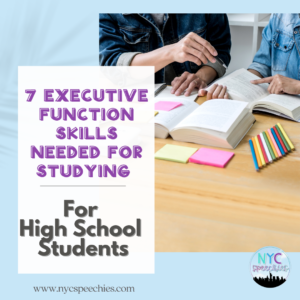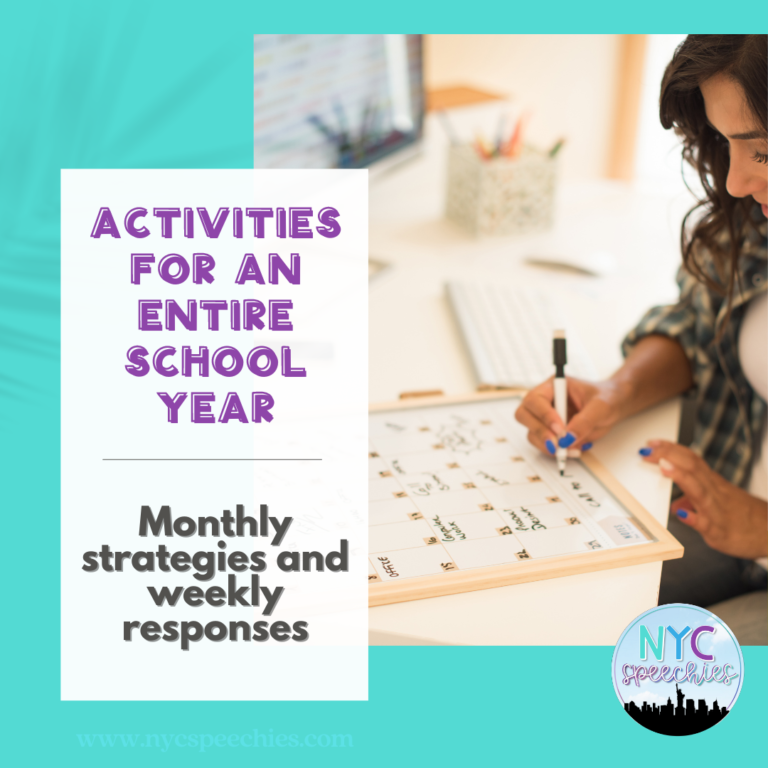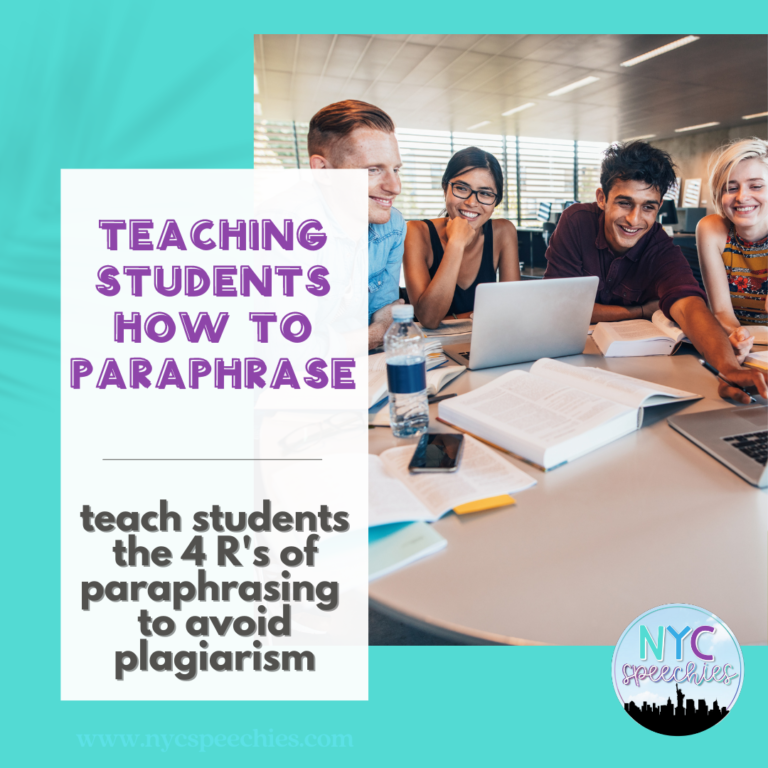7 Executive Function Skills Needed for Studying
 When you stop and really think about all that goes into studying, it’s no wonder our students struggle to study and pass tests. In school, the focus is on teaching students strategies and skills to access the curriculum. But what if we spent more time teaching our students HOW to study and HOW to pass their tests?
When you stop and really think about all that goes into studying, it’s no wonder our students struggle to study and pass tests. In school, the focus is on teaching students strategies and skills to access the curriculum. But what if we spent more time teaching our students HOW to study and HOW to pass their tests?
This is where executive functions come into play! Executive functions (EF) are complex cognitive control mechanisms that allow for goal-oriented behavior, and include updating working memory, cognitive flexibility, inhibition of irrelevant information, and self-control (Miyake et al., 2000). By understanding the key executive function skills needed for studying, we can help our students succeed by providing them strategies to support their individual areas of weakness.
Check out a few study tips for the following critical areas of executive functioning:
TASK INITATION
Help your students avoid pulling all-nighters the night before a test by providing them strategies such as setting a timer or an event reminder to start studying. Another idea is connecting them with a study buddy who can initiate study sessions. Help your students create a plan for their studying (start time and end times) with a few organizational calendars and planner sheets.
ORGANIZATION 
Have you ever looked in one of your students backpacks?? YIKES! Help your students organize their binders, notebooks, and class notes prior to taking their tests. Checking in on this organization throughout the year will be so beneficial for your students when it comes time to take a test and they need to study their notes from the entire unit. Keeping notes in sequential order will allow for easier study sessions. You can also remind your students to remove old notes after a big exam and put them in a safe place until their final exams. This will keep their notebooks and binders current and organized.
TIME MANAGEMENT
Help your students set up a study schedule. You can teach them how to utilize functions in their phones like reminders, timers, and alarms to break up their study sessions into 30-40 minute chunks of time.
PRIORITIZING
Teach your students how to prioritize what to study by creating a list of topics they should focus on. Use their class notes and help your students distinguish between important information and not-so important information. Remind them to only study the important information, irrelevant information is not needed to remember! Teacher your students how to utilize the review sheet they might receive from teachers in order to prioritize what needs to be studied.
 GOAL SETTING
GOAL SETTING
Show students how to set small goals for each study session – will they study a topic? Or perhaps will they study one whole unit at a time? Start with small, manageable goals for each session and check in. For example, a student might set a goal along the lines of, “I will study each lesson in Unit 1 for 30 minutes at a time.” Gradually increase the study session goal and length of time as they continue to improve. Achieving these small study goals will allow your students to feel successful and confident.
PLANNING
Help your students create an overall plan for studying – how will they study? What works best for them – flash cards? Study guides? Practice tests? Once you identify what works and what doesn’t – help your students create a study plan for each study session – start time, end time, type of studying, what is expected, etc.
WORKING MEMORY
A critical component to studying is actually remembering the material. Teach students memory strategies and how to quiz themselves. Have them create a study guide, make flashcards and quiz themselves, chunk topics into smaller subtopics, and create mnemonic phrases for important topics!
If you’re looking for some more study strategies, take a look at our “Test Taking” category in our TpT store.
How do you help your students with executive function difficulties study for their tests?






